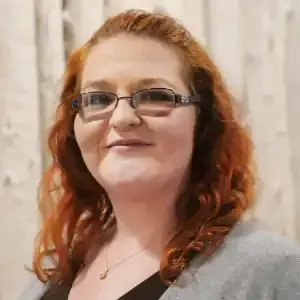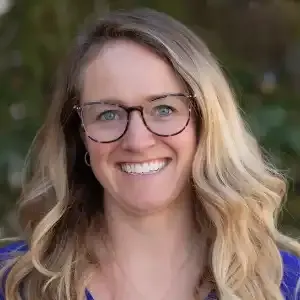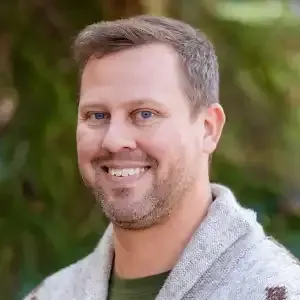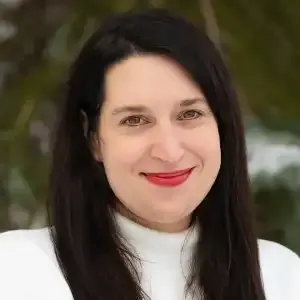








All Points North Lodge
Verified Center
This provider's information has been quality-checked by Recovery.com's Research Team for accuracy and completeness, including center verification through appropriate third-party organizations.
Treatment Focus
This center treats substance use disorders and mental health conditions. You'll receive individualized care catered to your unique situation and diagnosis, learn practical skills for recovery, and make new connections in a restorative environment.
Primary Level of Care
Offering intensive care with 24/7 monitoring, residential treatment is typically 30 days and can cover multiple levels of care. Length can range from 14 to 90 days typically.
Treatment Focus
This center treats substance use disorders and mental health conditions. You'll receive individualized care catered to your unique situation and diagnosis, learn practical skills for recovery, and make new connections in a restorative environment.
Primary Level of Care
Offering intensive care with 24/7 monitoring, residential treatment is typically 30 days and can cover multiple levels of care. Length can range from 14 to 90 days typically.
Provider's Policy
All Points North is in-network with TriWest and able to work with most PPO insurance plans with "out of network" benefits. We also accept self-pay clients. Please note that All Points North does not accept HMOs, Medicaid, or Medicare. Please click the Verify Insurance button below to start our free and confidential insurance verification process to determine if there are benefits which can be applied towards your care.
All Points North Lodge
All Points North Lodge
About All Points North Lodge
All Points North Lodge is a comprehensive wellness and personal development campus offering several distinct tracks for professionals, veterans, and athletes. From trauma-integrated addiction treatment and family programming to virtual therapy and deep trauma work, APN Lodge offers custom-curated care and cutting-edge services. They provide a full continuum of care, removing the need to transfer between providers, treatment centers, and therapists from the beginning to aftercare.
Leading Treatment Team
The multidisciplinary care offered at APN Lodge is a product of a world-class team. Primary therapists for addiction, trauma, and mental health blend evidence-based and holistic methodologies to bring a well-rounded experience that targets the whole person. The clinicians at APN create a clinical relationship with each client, helping their treatment align with what each client really needs. APN Lodge partners with the exceptional staff of Vail Health to provide medical and psychiatric services in addition to psychology and therapy. All Points North tracks their treatment outcomes through Acorn Systems, and has stayed in the top 5% for 2 years.
Treating Addiction And Trauma For Deep Healing
All Points North Lodge welcomes clients struggling with mental health or trauma—with or without the presence of an addiction. APN offers mental health and trauma therapy at residential, partial hospitalization (PHP), intensive outpatient (IOP), and outpatient levels. With a heavy trauma integration, drug and alcohol treatment at APN Lodge looks below the surface to examine the root cause of dysfunctional behaviors and patterns in executives, athletes, and anyone else wanting help. Therapy modalities include cognitive behavioral therapy (CBT), dialectical behavioral therapy (DBT), group work, family-focused treatment, psychodrama, experiential work, inner child work, post induction therapy, and more. After an extensive assessment, treatment plans are custom-curated for each unique client. APN Lodge strives to rebuild self-efficacy in each program, helping clients in the moment and far into their futures. Social detox (interpersonal care, non-medical) is offered at the Lodge, and higher levels of detox can be coordinated through APN Lodge's partnership network.
Residential And Telehealth: Virtual IOP and Outpatient Sessions
Addiction treatment, mental health, and trauma therapy are now available remotely through APN Connection: All Points North Lodge's exclusive telehealth app. Clients can address the heart of their issues, find professional support, and make serious progress from the comfort of their own home. Individual and group sessions are also available. If preferred, families can join as well, with weekly family therapy sessions included. After treatment, APN offers 8 weeks of complimentary outpatient family therapy to help clients and their loved ones transition into life outside treatment.
Mountainside Location And Specialized Programs
Nestled in the mountains just outside Vail, Colorado, APN’s 72-bed, 77,000 sq-ft Lodge offers stunning mountain views from every suite, private, semi-private, and shared. Clients can enjoy a full gym, yoga room, lounge areas, and stunning decor throughout. APN’s specialty programs include a veterans track, professionals program, and athletes program. Their professionals program welcomes business and health care professionals, with the option of staying in a private home for complete privacy. APN’s veterans program focuses on PTSD, trauma, moral guilt, and reintegration into civilian life. Their athletes program welcomes retired or professional athletes, focusing on facing trauma, managing anger, and creating healthy relationships.

Highlights from the Center
Highlights
These highlights are provided by and paid for by the center.
Therapeutic Location
Trauma-Informed Care
Master's Level Therapists
Executive Treatment
Center Overview
Treatment Focus
This center treats substance use disorders and mental health conditions. You'll receive individualized care catered to your unique situation and diagnosis, learn practical skills for recovery, and make new connections in a restorative environment.
Joint Commission Accredited
The Joint Commission accreditation is a voluntary, objective process that evaluates and accredits healthcare organizations (like treatment centers) based on performance standards designed to improve quality and safety for patients. To be accredited means the treatment center has been found to meet the Commission's standards for quality and safety in patient care.

All Points North Lodge
Insurance Accepted
Cash Pay Rates
Estimated Cash Pay Rate
Center pricing can vary based on program and length of stay. Contact the center for more information. Recovery.com strives for price transparency so you can make an informed decision.




All Points North Continuum of Care
Recovery.com Verified Listing
Recovery.com verified that the name, location, contact information and license to operate for this treatment provider are valid and up-to-date.

Joint Commission Accredited

Licensed
Recovery.com is an independent, third-party mental health resource. Verification does not imply endorsement and does not guarantee the quality of treatment services.
Meet Your Care Team

Katie Kostelyk
MA, NCC, LPC

Kerry Brown
PA-C

Lana Seiler
MSW, LCSW

Laura Tucker
MS, LPC

Tiffany Buchholz
MA, LPC

Dr. Amy Robertson
Psyd

Dr. Kate Daly
MD, Mphil

Dr. Michael Seeley
Psyd, LAC

Dr. Philip Hemphill
Phd, LCSW

Dustin Straight
LAC

Karri Francisco
LMFT
Your Care Options
Specializations
Detox
Detox fully and safely removes toxic substances from the body, allowing the next steps in treatment to begin with a clean slate.
Co-Occurring Disorders
A person with multiple mental health diagnoses, such as addiction and depression, has co-occurring disorders also called dual diagnosis.
Depression
Symptoms of depression may include fatigue, a sense of numbness, and loss of interest in activities. This condition can range from mild to severe.
Executives
Executive treatment programs typically directly support the needs of people who manage businesses and may provide flexible schedules and office space to allow work during treatment.
Veterans
Patients who completed active military duty receive specialized treatment focused on trauma, grief, loss, and finding a new work-life balance.
Trauma
Some traumatic events are so disturbing that they cause long-term mental health problems. Those ongoing issues can also be referred to as "trauma."
Who We Treat
Executives
Executive treatment programs typically directly support the needs of people who manage businesses and may provide flexible schedules and office space to allow work during treatment.
Young Adults
Emerging adults ages 18-25 receive treatment catered to the unique challenges of early adulthood, like college, risky behaviors, and vocational struggles.
LGBTQ+
Addiction and mental illnesses in the LGBTQ+ community must be treated with an affirming, safe, and relevant approach, which many centers provide.
Men and Women
Men and women attend treatment for addiction in a co-ed setting, going to therapy groups together to share experiences, struggles, and successes.
Midlife Adults
For adults ages 40+, treatment shifts to focus on the unique challenges, blocks, and risk factors of their age group, and unites peers in a similar community.
Professionals
Busy, high-ranking professionals get the personalized treatment they need with greater accommodations for work, privacy, and outside communication.
Treatment Services
Day Treatment
In a PHP, patients live at home but follow an intensive schedule of treatment. Most programs require you to be on-site for about 40 hours per week.
Detox
Detox fully and safely removes toxic substances from the body, allowing the next steps in treatment to begin with a clean slate.
Intensive Outpatient Program
In an IOP, patients live at home or a sober living, but attend treatment typically 9-15 hours a week. Most programs include talk therapy, support groups, and other methods.
Outpatient
During outpatient rehab, patients attend a structured treatment program while continuing to live at home.
Residential
In a residential rehab program, patients live onsite, with access to daily treatment and 24-hour care. An average stay is 30-90 days.
Approaches
Evidence-Based
A combination of scientifically rooted therapies and treatments make up evidence-based care, defined by their measured and proven results.
Family Involvement
Providers involve family in the treatment of their loved one through family therapy, visits, or both–because addiction is a family disease.
Holistic
A non-medicinal, wellness-focused approach that aims to align the mind, body, and spirit for deep and lasting healing.
Therapies
1-on-1 Counseling
Patient and therapist meet 1-on-1 to work through difficult emotions and behavioral challenges in a personal, private setting.
Meditation & Mindfulness
A practiced state of mind that brings patients to the present. It allows them to become fully aware of themselves, their feelings, and the present moment.
Mindfulness Therapy
This ancient practice can be mental, emotional, and even spiritual. In meditation, you focus your attention on the present moment without judgement.
Art Therapy
Visual art invites patients to examine the emotions within their work, focusing on the process of creativity and its gentle therapeutic power.
Couples Counseling
Partners work to improve their communication patterns, using advice from their therapist to better their relationship and make healthy changes.
Equine Therapy
Guided interactions with trained horses, their handler, and a therapist can help patients improve their self-esteem, trust, empathy, and social skills.
Experiential Therapy
With this approach, patients heal by doing. Therapists help patients process difficult emotions to speak, using guided activities like art or dance.
Conditions We Treat
Anger
Although anger itself isn't a disorder, it can get out of hand. If this feeling interferes with your relationships and daily functioning, treatment can help.
Anxiety
Anxiety is a common mental health condition that can include excessive worry, panic attacks, physical tension, and increased blood pressure.
Bipolar
This mental health condition is characterized by extreme mood swings between depression, mania, and remission.
Burnout
Burnout entails mental and physical exhaustion, and leads to a severe lack of fulfillment. This condition is often caused by overwork.
Depression
Symptoms of depression may include fatigue, a sense of numbness, and loss of interest in activities. This condition can range from mild to severe.
Gambling
Excessive, repetitive gambling causes financial and interpersonal problems. This addiction can interfere with work, friendships, and familial relationships.
Internet Addiction
Internet addiction is common among children teens. This compulsive disorder can damage relationships, school performance, sleep habits, and physical health.
Obsessive Compulsive Disorder (OCD)
OCD is characterized by intrusive and distressing thoughts that drive repetitive behaviors. This pattern disrupts daily life and relationships.
Post Traumatic Stress Disorder
PTSD is a long-term mental health issue caused by a disturbing event or events. Symptoms include anxiety, dissociation, flashbacks, and intrusive thoughts.
Substances We Treat
Alcohol
Using alcohol as a coping mechanism, or drinking excessively throughout the week, signals an alcohol use disorder.
Benzodiazepines
Benzodiazepines are prescribed to treat anxiety and sleep issues. They are highly habit forming, and their abuse can cause mood changes and poor judgement.
Co-Occurring Disorders
A person with multiple mental health diagnoses, such as addiction and depression, has co-occurring disorders also called dual diagnosis.
Cocaine
Cocaine is a stimulant with euphoric effects. Agitation, muscle ticks, psychosis, and heart issues are common symptoms of cocaine abuse.
Drug Addiction
Drug addiction is the excessive and repetitive use of substances, despite harmful consequences to a person's life, health, and relationships.
Heroin
Heroin is a highly addictive and illegal opioid. It can cause insomnia, collapsed veins, heart issues, and additional mental health issues.
Methamphetamine
Methamphetamine, or meth, increases energy, agitation, and paranoia. Long-term use can result in severe physical and mental health issues.
Opioids
Opioids produce pain-relief and euphoria, which can lead to addiction. This class of drugs includes prescribed medication and the illegal drug heroin.
Languages
Aftercare
Care Designed for Your Needs
Personal Amenities
Amenities
Special Considerations
Couples program
Using gentle clinical care, therapists guide patients and their partner through guided sessions to address issues and work towards lasting solutions.
Executive Program
Addiction and mental health treatment for executives typically involves high discretion, greater technology access, and more private, 1-on-1 care.
Flexible technology policies
Centers with flexible technology policies allow professionals to stay in touch with work and give patients a greater sense of connection and normalcy.
Healthy Meals are provided
Great food meets great treatment, with providers serving healthy meals to restore nutrition, wellbeing, and health.
LGBTQ group
Group therapy unites LGBTQ+ patients in a safe and culturally competent setting, encouraging peer support under the expert leadership of a therapist.
Activities
Yoga
Yoga is both a physical and spiritual practice. It includes a flow of movement, breathing techniques, and meditation.
Off-Site Activities
Off-Site Amenities

Learn More About the Center
Podcasts by APN
Listen to real-world experiences and therapist insights on the APN podcasts.
All Points North Awarded Community Partner of the Year
Learn more about All Points North being awarded Community Partner of the Year by WarriorNOW for its support and dedication to end veteran suicide.
Luxury Accommodations at APN Lodge
See the luxurious private, semi-private, or double rooms offered at APN Lodge, all with coveted views of Colorado mountains.
The APN Way: Pathways on Your Treatment Journey
Learn how APN inspires health and enriches lives through innovative care for the mind, body, and soul. Learn about the eight pathways followed along a treatment journey with APN.
What people are saying
Treatment
3.8
Accommodations
4.7
Food & Nutrition
4.5
Value
4.3
Ashley
Reviewed 12/16/21
Review from Rehabs.com
Beth
Reviewed 04/05/23
Review from Rehabs.com
Anna
Reviewed 02/04/21
Review from Rehabs.com
Andrea
Reviewed 02/24/21
Review from Rehabs.com
Whitney
Reviewed 02/25/21
Review from Rehabs.com





